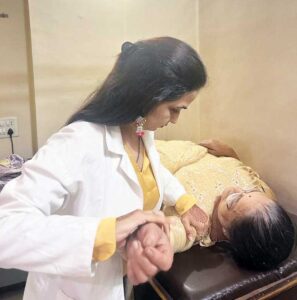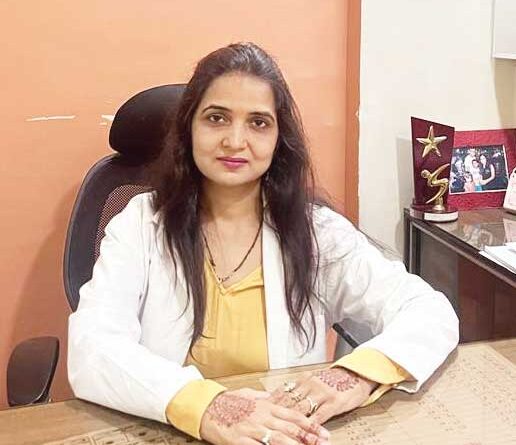De-Frosting Frozen Shoulder at Sara Physiotherapy and Rehabilitation Centre
Adhesive shoulder capsulitis, or arthrofibrosis, commonly known as Frozen Shoulder, is a pathological process in which the body forms excessive scar tissue or adhesions across the glenohumeral joint capsule, leading to stiffness, pain, and dysfunction. On World Physiotherapy Day, Dr Neeta Sahajwani, the founder of Sara Physiotherapy and Rehabilitation Centre, shares insights about Frozen Shoulder Condition. Dr Neeta Sahajwani is a highly skilled Physiotherapist with vast experience in Physio for Orthopaedic and neuro for kids and adults. Dr Neeta has been practising physiotherapy for over 20 years.
What is a Frozen Shoulder?
Frozen Shoulder is a common, disabling, but self-limiting condition, which typically presents in three stages and ends in resolution. Frozen Shoulder is classified as a primary (idiopathic) or secondary case. The aetiology of the primary Frozen Shoulder remains unknown. It is frequently associated with other systemic conditions, most commonly diabetes mellitus, or following periods of immobilisation, e.g., stroke.
What are the symptoms of a Frozen Shoulder, and when should one see a doctor?
People suffering from a Frozen Shoulder will have severe pain and a stiff shoulder. This may seriously interfere with their ability to do everyday tasks like wearing clothes, bathing, and other work. Even when the pain increases, the stiffness is often quite disabling. This condition might hold you back from reaching overhead to the side, across your chest, or rotating your arm from front to back. This might make it impossible to scratch your back.
What are the causes of Frozen Shoulder?
The shoulder is the only joint that commonly freezes. The bones, ligaments, and tendons that structure the shoulder are encased in a capsule of animal tissue. Frozen Shoulder occurs when the capsule thickens around the shoulder and restricts its movement. This biological puzzle is yet to be unravelled, meaning the exact cause of the freezing remains a mystery to date.
Who is more in danger of developing it?
• It usually affects middle-aged people between 40 and 60, especially women.
• People who wear a shoulder sling for prolonged periods following trivial trauma or surgery.
• Diabetics are at higher risk, with nearly 20% getting afflicted.
• Certain other medical conditions like underactive Thyroid, Stroke, and Parkinson’s disease have been known to cause Frozen Shoulder.
How has Sara Physiotherapy and Rehabilitation Centre helped treat a Frozen Shoulder?
At Sara Physiotherapy and Rehabilitation Centre, we follow a holistic approach to managing Frozen Shoulders. We use tailored exercise programmes and specialised equipment for the early recovery of our patients. We incorporate treatment techniques like IASTM, Dry Needling, Cupping, Kinesiology Taping, IFT, US, TENS MFR, Matrix, PEMF and Manual Therapy depending on the condition of the patients. Each of these techniques has unique benefits and can be combined with standard physiotherapy methods to address Frozen Shoulder’s multifaceted challenges effectively.

What is your preventive advice for Frozen Shoulder?
For prevention and early cure, we advise maintenance of proper posture, regular shoulder exercises, avoiding prolonged immobilisation, staying active, managing health conditions, and last but not least, listening to your body.
Can you share a successful case of treating Frozen Shoulder?
Although we have had multiple cases, I recall one in which a 50-year-old patient with a Frozen Shoulder (Lt) was cured fully within 15 days. Last month, she revisited our clinic for Frozen Shoulder (Rt) treatment after 10 years. She has yet again recovered fully and blessed us. Many repeat patients visit and recommend us to their near and dear ones for various physiotherapy needs. We are motivated to see people’s faith in our team and clinic.
At its clinic, Sara Physiotherapy and Rehabilitation Centre are organising a free consultation camp and offering 50% discount on treatment package on the eve of World Physiotherapy Day.
Date: September 10, 2023 | Time: 10 am to 2pm
Address: Sara Physiotherapy and Rehabilitation Centre #002, C1-Aster, Sai Baba Vihar Complex, Anand Nagar, Ghodbunder Road, Thane (W), 400615
Mobile: 9987872978, 8850181727 | Instagram handle: @dr.Sarasahajwani

